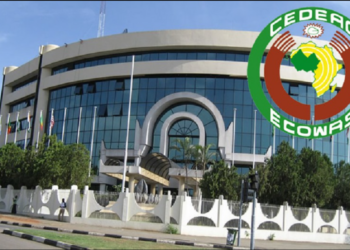On Sunday, July 8 2019, Nigeria’s President, Muhammadu Buhari, signed the African Continental Free Trade Agreement (AfCFTA); joining over 50 other African countries in ratifying what is being considered as the largest free trade agreement in any continent in the world.
The agreement is expected to encourage trade relations in Africa by removing tariffs for over 90% of goods traded between member countries. It is also expected to lead to the free movement of people within the continent, thereby enabling a single market for air and road transportation.
It has taken President Buhari over 6 months to ratify this deal after widespread consultations suggested that it could have varying implications for millions of businesses around the country. Nigeria’s population and the size of its economy give it a superior advantage. But ironically, it also makes it vulnerable to the downsides of the agreement.
So, how exactly does this deal affect manufacturers, SME’s, micro businesses, startups, and the economy in general? Here are a few pointers.

Gross reduction in tariffs
The cornerstone of the AfCFTA is the promise for zero tariffs for over 90% of goods traded between African countries.
- This means that manufacturers in Nigeria can produce goods locally and get it across our borders to sell in markets beyond Nigeria, without having to pay any duty.
- Tariffs by design are set to inhibit freedom of goods, making it less competitive for exporters with a high cost of production when compared to locally made goods.
- By eliminating them, businesses in Nigeria can reduce the cost price of their goods, thereby making them even more competitive across markets.
[READ FURTHER: How Nigerian exporters will benefit from NEXIM Bank’s $1 billion dirbursement]
It creates new markets
One of the major complaints we get from businesses is their inability to compete with the foreign-made goods that are sold locally. Business owners often complain about cheaper foreign imports with better quality. In fact, even when they are cheaper, some Nigerian goods fail to compete with their foreign counterparts in terms of quality.
- However, with AfCFTA, Nigerian manufacturers can export to poorer African countries with a lower taste for quality products.
- The more they compete with their local rivals and export, the better they get at production.
- This is the same model countries such as South Korea and Taiwan used for decades until they improved and became major exporters of electronics.
It will attract foreign investments
Last year, Nigeria attracted about $1.2 billion in Foreign Direct Investments, up from the $981 million received in 2017. However, when compared to foreign portfolio investment of $12.1 billion, you realise there is a huge room for improvement. A lot of factors are often blamed for Nigeria’s low foreign direct investments.
- These are poor infrastructural development, limited economies of scale, weak purchasing power, and challenges with ease of doing business.
- The AfCFTA could help mitigate some of these challenges in so many ways.
- For example, by having access to markets beyond Nigeria, the investors can set up manufacturing hubs within Nigeria and from here export goods to member nations of the AfCFTA.
- This increases FDI into Nigeria creating a knock-on effect on the exchange rate of the country.
[READ THIS: How Nigeria’s Air Peace lost N1.2bn trying to operate across Africa]
Transportation Boom
One sector that is poised to benefit from the AfCFTA is the transportation sector.
- Nigeria’s transport sector is one of the fastest growing in Africa, posting a GDP growth rate of 19.5% in the first quarter of 2019.
- When disaggregated, all sub-sectors (aside Road transport), are either posting low single digits growth or are negative.
- This provides an opportunity for rail, air, and water transportation to grow.
- To enable goods to move from one end to the other, billions of dollars in investments will have to be made on building road networks that connect landlocked countries, bridges across rivers and lagoons, rail lines, and more airports.
- Travel agents, transporters, airlines, logistics companies etc. stand to gain immensely.
Reduction in unemployment
As mentioned earlier, one of the key tenets of the AfCFTA is that it allows the freedom of people across borders.
- When people move, it means they can secure quality jobs within and outside their various countries.
- A larger job market also bodes well for businesses, especially startups looking to secure talents from any corner of Africa.
- The more jobs we create and export, the lower the unemployment rate in the country.
[READ THIS: IMF warns about China’s loan terms, as Nigeria’s ‘romance’ with Asian country deepens]
Importation of raw materials
After the CBN Governor, Godwin Emefiele, banned the use of forex for 41 imported items, local manufacturers, whom the policy was expected to help, lamented that they could no longer access raw material inputs which are hugely required to produce locally.
- Since Nigeria’s manufacturing sector has gone from 3.39% in the first quarter of 2018 to 0.81% in the same period this year.
- The AfCFTA could help alleviate this challenge as Nigerian businesses can reach out to resource-rich African countries for raw material inputs.
- Nigeria is also rich in natural resources and can now access new markets for exports.
Service Export
Nigeria’s burgeoning service industry could earn a major windfall if everything goes right with the AfCFTA.
- Less advanced neighbouring African countries can rely on services from Nigeria to boost their local economy.
- Nigeria can export services like insurance, finance, logistics, legal, accounting, construction, real estate development, and other consultancy based services, the same way these services are currently imported into the country.
- A simple example is Nigeria’s growing betting industry. Appetite for sports betting is surely beyond Nigeria, and who better to help set it up than Nigerians?
[ALSO READ: Why AfDB is confident that Nigeria will sign the ACFTA soon]
A look at the disadvantages
While we savour the opportunities of the AfCFTA, we are also mindful of its potential downsides. Here are some key examples;
Increased smuggling: Due to its large population size, Nigeria is a dumping ground for smuggled goods. The AfCFTA could worsen this situation if the Government does not ensure that cooperation between Nigeria and neighbouring countries are stiff enough to disincentivise smuggling.
Poor regulation: Nigeria’s knack for ineffective regulations could also work against the benefits of AfCFTA. For the agreement to work, countries are expected to put in place flexible regulations that should aid trade such as reducing bottlenecks to ease of doing business.
Loss of jobs: Just as we AfCFTA can create jobs for the local economy, it could also lead to loss of jobs. This is because citizens of poorer African countries could migrate to Nigeria and compete for jobs with locals at even lower pay.

Small companies may die: Perhaps the greatest challenge of AfCFTA is whether SME’s and startups will be able to compete with larger and more financially superior companies. This agreement breaks up barriers that would typically protect smaller local players from being annihilated by larger corporations.
Lack of enabling laws: We often complain about Nigeria’s weak laws and its inability to protect small businesses against things like property rights, intellectual property theft, strong monopolies, and labour rights. Most African countries are even weaker than Nigeria when it comes to these laws, thus increasing the risk of doing business across the continent.
Lower government revenue: Eliminating tariffs could wipe out hundreds of billions of naira in custom duties earned by Nigeria. The impact of this on government’s revenue cannot be overemphasized. If the government does not mitigate this by attracting increased export proceeds from the sale of goods to other African countries then we could be toast.























I think neighbouring, more efficiently run countries will benefit from any increased FDIs not Nigeria. Why set up in Nigeria, with its nurmerous infrastructural challenges when you can set up, say in Ghana and still have full access to the Nigerian market. …its a no brainer IMO
Without the AfCFTA, and the accompanying open borders, wars are already being exported freely across borders. With the AfCFTA, there sure will be a spike in conflicts across borders – the value of the agreement will be eroded.
There is the minimum infrastructure level before these kind of agreements are put in place – we don’t have this in the African region today.
What happens to regional efforts like ECOWAS? The ECO? Dumped? What lessons did we learn from these efforts?
I feel we are in a haste on this…..